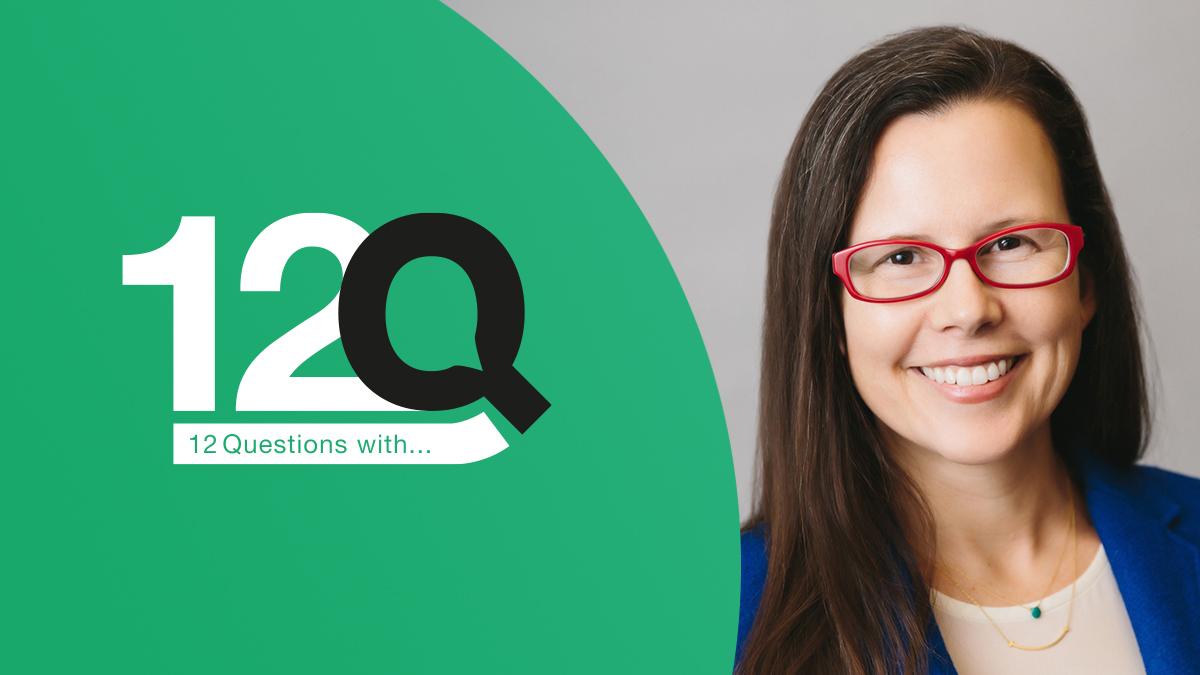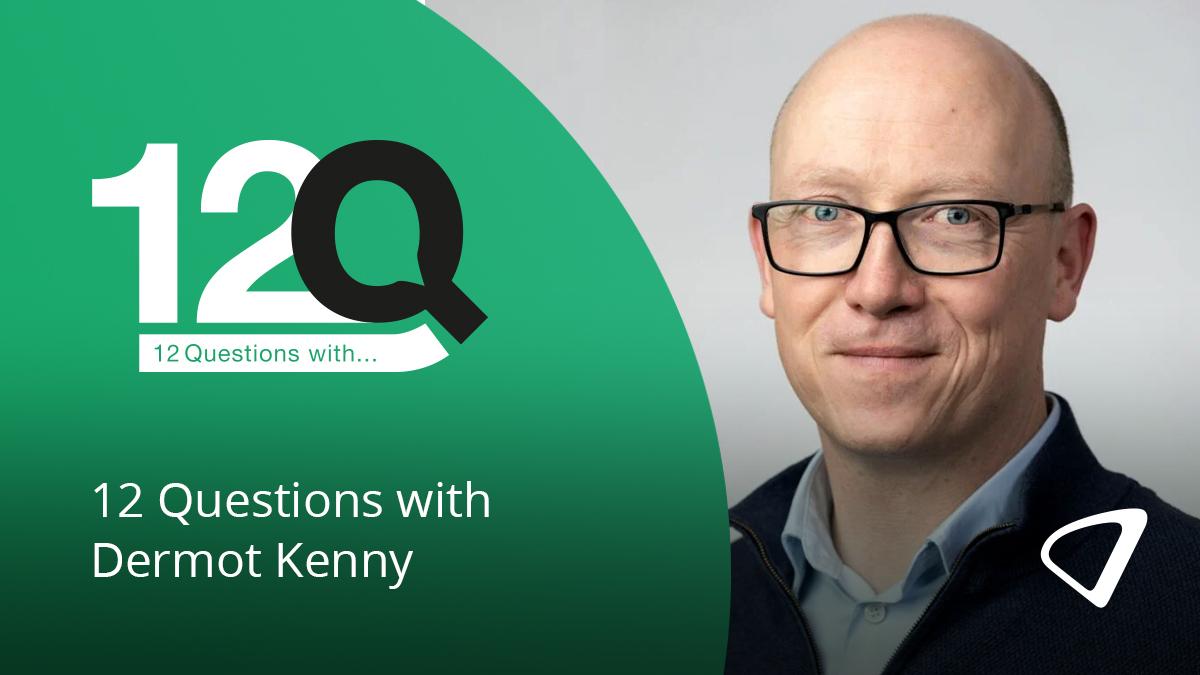12 Questions with Mimi Huizinga

Dr Mimi Huizinga is Vice President, Oncology Medical Affairs, Lung Cancer at AstraZeneca. She focuses on improving healthcare by achieving clinical excellence and amplifying scientific innovation to improve patient outcomes. Before joining AstraZeneca, Dr Huizinga provided clinical care as a Medical Internist. She also studied Epidemiology and is a part-time Assistant Professor of Medicine at the Johns Hopkins School of Medicine.
What are the main responsibilities of your current role? Currently, as VP, Oncology Medical Affairs, Lung Cancer at AstraZeneca, I oversee the strategic direction and overall leadership of our lung cancer portfolio. This includes driving key lung cancer studies and evidence-generation activities, managing the development and execution of medical strategies, ensuring the medical and scientific integrity of lung cancer-related initiatives, and representing the company in interactions with key external stakeholders, such as healthcare professionals, patient advocacy groups, and regulatory agencies. I also support educational activities related to lung cancer and the dissemination of scientific and medical information to support optimised disease management and patient access to our therapies worldwide.
What is your proudest professional accomplishment to date? Being named one of the ‘Top-30 Women AI Leaders in Drug Discovery and Advanced Healthcare’ was definitely one of those “pinch me” moments. I truly believe in leveraging AI to improve patients’ lives and I’m constantly learning how this quickly evolving tool can be used to upgrade analytics in clinical trials, including improving diversity and systemic bias. I also pride myself on being a mentor, since I work as a part-time Assistant Professor at the Johns Hopkins School of Medicine. I loved science as a little girl, but was often met with barriers around career opportunities within the field, so, in the last sixteen years as a professor and a colleague in different work environments, I continuously strive to encourage the next generation of women in science, that with passion and motivation they can reach their career goals, just like I have.
What are some of the biggest ongoing challenges in your work? Cancer is an ever-evolving, very smart disease, so we need to constantly stay ahead of it. Our challenge in lung cancer is particularly intensified as it is the number one cause of cancer death globally, so we work hard to remain nimble in the rapidly evolving scientific landscape, bringing treatments to a diverse patient population while ensuring equitable access to innovative treatments. Additionally, navigating regulatory complexities and fostering effective collaborations among research partners, policy makers, and other partners within the lung cancer space can also be a challenge in a constantly evolving industry.
What motivates you about working in pharma? What motivates me most about working in pharma is the opportunity to make a tangible difference in patients' lives. As an internist, I’ve seen first-hand the impact that improved therapies can have on patients, so the ability to translate scientific discoveries into real-world treatments that can improve and extend lives is incredibly fulfilling. Knowing that our work has the potential to provide hope and support better outcomes for lung cancer patients keeps me driven and passionate about my role.
What is your personal mission statement? What values keep you centered in your work? My personal mission statement is to bring healthcare innovation to patients and their families and promote equity in care so that all patients have access to advancements in clinical care. These values guide my decisions and actions, ensuring that our efforts always prioritise patient well-being and scientific rigour.
What do you see as the biggest challenges facing the industry right now? The biggest challenges facing the industry right now include the rising cost of drug development, regulatory hurdles, and ensuring equitable access to cutting-edge therapies. We need to strive for a fair and equitable health system, and we need to work together to do so. Additionally, rapidly changing technological advancements and integrating them into existing frameworks present significant challenges. Addressing these issues requires continuous innovation and effective advocacy for policy change.
What excites you most about current industry trends? One of the most exciting aspects of current trends in oncology is the rapid pace of innovation and the potential for transformative impact on cancer care. The continued advancement of immunotherapy, including immune checkpoint inhibitors, CAR-T cell therapy, and cancer vaccines, demonstrates great potential in treating various cancer types.
The increasing use of precision medicine and molecularly targeted therapies is revolutionising cancer treatment. I am also excited by recent advancements in cancer therapy, including targeted therapies and combination therapies.
Finally, two big passion areas of mine, digital health and big data and patient-centric care, are both areas that continue to improve how we can treat and manage patient outcomes. The integration of digital health technologies and real-world evidence is the backbone of oncology research and innovation – these tools help us to interpret complex data, accelerate drug discovery, and enable more precise and personalised care.
What has changed most about the industry since the start of your career? Delivery system improvement and the incorporation of digital health technologies have greatly influenced how we develop and deliver treatments. I look forward to seeing how that continues to evolve.
What do you think pharma will look like in 15 years? 50 years? In 15 years, I envision pharma becoming even more integrated with technology, with AI and machine learning playing a crucial role in drug discovery and patient care. In 50 years, it is hard to say, as innovation is increasing at such pace, with monoclonal antibodies, recombinant proteins, and gene and cell therapies already transforming the therapeutic landscape and leading to breakthroughs in oncology, autoimmune diseases, and rare genetic disorders.
We will hopefully also see regulatory and drug development changes that afford expedited development and equitable delivery of therapies, especially breakthrough therapies; supported by increased globalisation and outsourcing of research, development, and manufacturing around the world.
Finally, digital health and data analytics will likely be mind-blowing in 50 years. When we look at how far we have come in the last 50 years, it is unthinkable where we can be in another 50 years. Electronic health records all in one place, wearables as standard, and global telemedicine coverage to enhance patient monitoring and outcomes are all things I dream of being in place – I think we can do it!
What advice do you have for your pharma industry peers? My advice to my peers in the pharma industry is to remain curious and stay committed to innovation and patient-centric care. Embrace collaboration across disciplines and industries, as the challenges we face are complex and multifaceted. Continuously seek to improve and adapt, keeping an open mind to new technologies and methodologies. Above all, maintain a steadfast commitment to ethical practices and transparency.
What advice would you give to a young person starting out in your field? My part-time role at Johns Hopkins fortunately allows me to meet many young professionals starting out in this field year-to-year and my advice to them centres around their passion for this field. I talk to them about why they decided to work in healthcare, and I always advise them to make improved patient care their goal. Seek out mentors and build a strong professional network. Be open to learning and adaptable to change, as the industry is constantly evolving. Focus on developing a solid foundation in both the scientific and regulatory aspects of pharma and never lose sight of the impact your work can have on patients' lives.
How do you manage health, fitness, and wellness in your life? I believe in always keeping our minds and bodies engaged for a long and healthy life. I personally keep my mind and muscles active by practicing yoga regularly. It’s one of my true passions, as it never fails to transform my day for the better. I prefer active relaxation: my family and I often go hiking in the beautiful mountains or go skiing!
Connect with Mimi Huizinga on LinkedIn.










